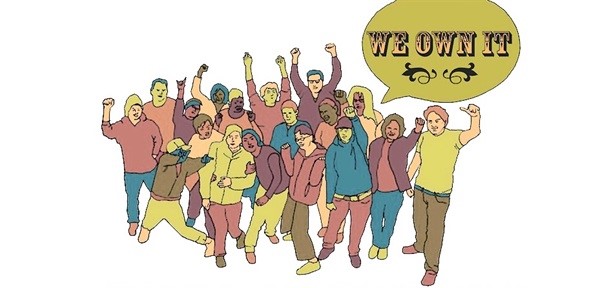Robust employee ownership discussions emerging in response to the COVID-19 pandemic

From the New York Times to The Nation to business and academic journals, we are seeing a wave of commentators endorsing employee ownership as a solution to the current economic crisis.
In the New York Times series The America We Need, former Labor Secretary Robert B. Reich reminds readers that at mid-century when America’s corporations flourished along with its middle class, profit-sharing plans shared wealth up and down the corporate ladder. Sears employees owned a quarter of the company in the 1950s, allowing Sears salesmen to retire with an average of $1 million in retirement savings. After four decades of higher profits for executives and shareholders and lower wages for workers, our economic model is now unsustainable, says Reich. “Sharing the profits with all workers is a logical and necessary first step to making capitalism work for the many, not the few.”
Tim Wu goes the next step in his contribution to the series, arguing “Congress could encourage [employee buyouts] by allocating some of the recovery funds to equity investments by employees looking to acquire their companies.” He also recommends a “right of first refusal” for employees of businesses about to be sold.
Congress could encourage [employee buyouts] by allocating some of the recovery funds to equity investments by employees looking to acquire their companies.”
–Tim Wu, opinion writer and law professor at Columbia University
Finally, nothing speaks louder than success. The Times profile of Up & Go, a cleaning services platform cooperative, demonstrates the real possibility for a future of work based in democratic ownership. Fifty-plus immigrant women, who clean residential and commercial properties, own this platform. As a result, they have boosted their wages from $10 or $12 per hour to $25 per hour. With greater control over their work lives, they have also ensured everyone has the information and equipment they need to stay safe during the coronavirus pandemic.
Closing the racial wealth gap is the focus of Phillip Reeves and Todd Leverette, partners at Apis & Heritage Capital and leaders of the Democracy at Work Institute‘s Legacy Business Initiatives, in an article at Impact Alpha. Their argument about the profound impact of employee ownership on the net worth of people of color is echoed in a post from the Menke Group, a financial services firm that supports ESOP transitions.
Community-based ownership is the theme of Nathan Schneider’s latest column, Cooperative Ownership: A Covid Recovery Strategy, in The Nation. He argues that an alternative to the Amazon economy could be saving our local businesses through Local Economy Preservation Funds, a concept proposed by The Democracy Collaborative; efforts like the Main Street Phoenix Project designed to roll up businesses and relaunch them as worker cooperatives; or Direct Public Offerings (DPOs). DPOs allow community residents to buy shares in local businesses and are increasingly being used to finance cooperative businesses (see our stories on CERO and ChiFresh Kitchen).
A slightly different focus comes from Chris Mackin and Richard May of American Working Capital, who argue in an article in the economic journal Challenge, that government investments in distressed firms be tied to broad-based community or employee ownership. Among their recommendations, a United States Sovereign Wealth Fund through which taxpayer bailouts would offer returns to the public on the upside.
To follow Employee Ownership News, subscribe to the Fifty by Fifty newsletter or follow us at Medium.
